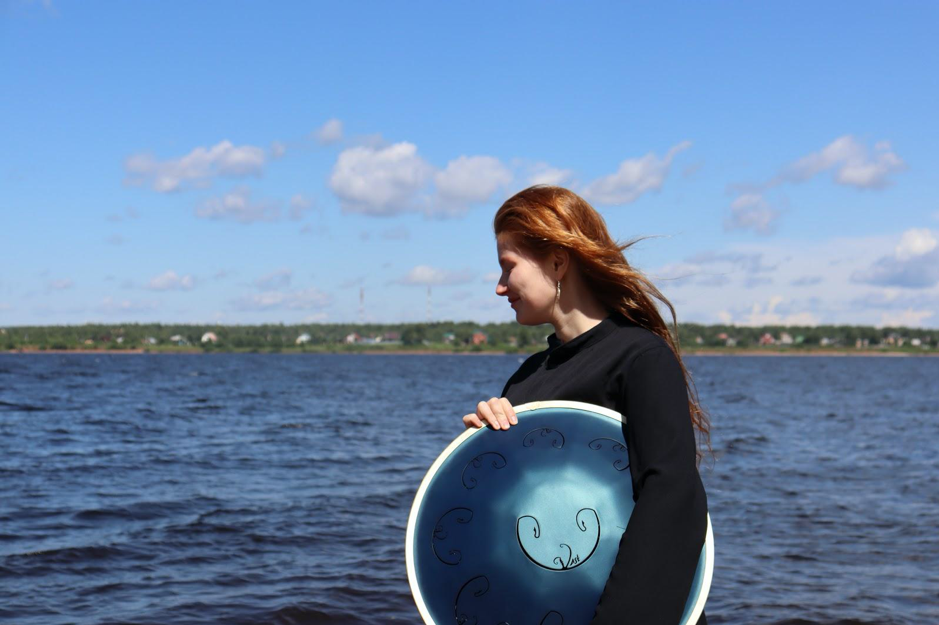Choosing a RAV Drum Scale for Beginners
Feb 07, 2020 04:37

You can get great pains looking for the right scale, especially if it’s your first steel tongue drum. Should you simply choose the sound you like or should you decide on the scale complexity? Should it be a versatile the D Major scale, or the oriental G Minor Pentatonic? When choosing from the RAV Vast drums you won’t get between a rock and a hard place. This guide will help you to make the right choice.
How to choose the drum?
Many newbies get trapped by the sound of the hang drum and start searching for a handpan drum for sale. But further these beginners get disappointed as they cannot instantly create the beautiful melodies they once have heard from professional musicians using this hand drum. The recommendation for a newbie is, choose the instrument that not only stands out to you but also is one you will be able to handle and play. There’s nothing more frustrating than not achieving the result you want. A good solution is taking the RAV Vast that is also a tonal percussion and produces a beautiful sound but is easy to acquire even for the first-timers (and is twice more affordable).
How to choose the right RAV Vast scale? From the first sight, the list of the RAV drums on sale can seem to be intimidating. To make the choosing process easier, you’ll see that the drums are divided according to the musician’s mastery level. If you are about to start learning to play the tongue drum, take a look at the scales that have a mark “easy” in the proficiency level section. There are a few scales that are recommended for the newcomers like the B RUS - (RAV Universal Scale), D Major, B Celtic Minor, G Pygmy, G Minor Pentatonic and the B Celtic Double Ding.
If you are an experienced musician, you can handle pretty any scale. But if you are a newbie and all these things sound unfamiliar to you, how to choose the right one? Here are some tips that will help you to avoid pitfalls.
Choose the scale depending on what kind of music you want to play
Are you gonna use your RAV to play with other musicians? Or you want to play during meditation or yoga sessions? Or maybe you want to play for yourself staying at home, learning some solo techniques? Some scales are good for slow melodies and some - for brisk. Some scales have more ethnic sound and some are more neutral. If you are a beginner, it will be better to choose more versatile scales as they provide you a big room for experiment and let you understand what music and style of playing you like. The most versatile scales are the D Major, B Celtic Double Ding, B RUS - (RAV Universal Scale) and B Kurd (however this scale is not recommended for beginners).
If you prefer more specific sound, take a look at the B Celtic Double Ding (it has an additional note and provides you more room for experiments), G Pygmy (a really low sound), G Minor Pentatonic (with the Japanese vibes).
Choose on your budget
Some scales are harder to produce than others and this affects the price. If you feel a little bit “penny-pinchy”, opt for the D Major, B RUS - (RAV Universal Scale), B Celtic Minor and G Pygmy as the most affordable scales. You’ll get a good instrument and save some for a rainy day.
Choose the scale that stands out to you
Choosing the scale is naturally all the matter of taste. We don’t know why we like chocolate ice-cream and the smell of roses – it’s just we like them. You can feel like the sound of some scale speaks to you more than another. A good thing to do is to listen carefully the records of different scales for a few days without knowing which one you are hearing. After a short time, you will distinguish different scales by ear and will note that you like some of them more than others.
But if you want to skip it all and go straight to the matter…
Simply choose the D Major and you won’t be upset. This is one of the most frequent scales to choose by beginners (and pros also love it). It has a clear sound and is very versatile. This scale can accompany other instruments like piano, guitar and violin and it sounds great with pretty any RAV Vast. The D Major will let you make your first steps in learning to play the tongue drum and will work even after when you evolve as a musician and reveal the great world of tongue drum music!







































































